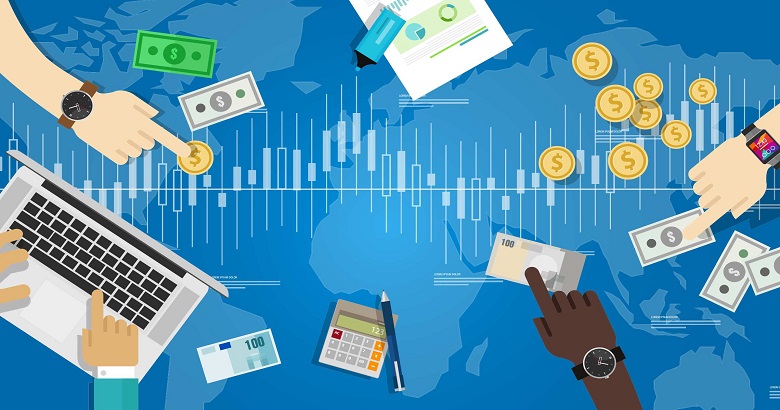Technology plays an important role in modern society and our daily lives. But how does technology fit into the academic study of sociology? This blog post will explore how sociologists define and study technology. We’ll look at some key concepts of how technology impacts society, such as how it shapes social interactions and human relationships.
Defining Technology in Sociology
Technology refers to the tools, machines, instruments, and procedures used to solve problems or expand human capabilities. In sociology, technology is examined as a social and cultural phenomenon, not just as a product or object. Sociologists view technology as socially constructed – influenced by economic, political, and historical factors.
Some key aspects of how sociologists define technology include:
- Technology is embedded within social structures and cultural contexts. It both shapes and is shaped by society.
- The development and use of technology are social processes influenced by power dynamics, economics, politics, and more.
- Different social groups may experience and engage with technology in different ways based on factors like age, gender, class, ability, and more.
- Technology changes over time as new innovations emerge and older ones become obsolete. This technological evolution also transforms societies and cultures.
So, in summary, sociologists take a broader view of technology – not just as machines but as a social phenomenon with cultural meanings and social impacts. They examine the reciprocal relationship between technology and society.
Shaping Social Interactions and Relationships
Modern digital technology has significantly impacted how people connect and socialize. Some sociological perspectives on these changes include:
- Computer-mediated communication (CMC), like social media, messaging apps, and online gaming, have augmented face-to-face interactions but also reduced in-person socializing for some.
- Virtual relationships and online communities allow for maintaining loose social ties across distances but may discourage deep interpersonal bonds that arise from co-presence.
- Mobile devices like smartphones mean people can be constantly connected yet also constantly distracted. This impacts social etiquette and norms around device usage.
- Greater technology use for entertainment and leisure means people spend less time engaged in other shared social activities. However, some new technologies promote bringing people together, such as multiplayer gaming.
- Anonymity and reduced social cues in online interactions can impact civility but also allow for exploring new aspects of oneself. Cyberbullying is a darker side-effect.
So, in broad terms, digital technologies are changing the nature, depth, and quality of social bonds and shared social experiences according to sociological perspectives. Both benefits and challenges arise.
Impacts on Work and Economy

Technology has massively impacted work and economies in recent decades through:
- Automation replacing many routine jobs while creating new technology-based career fields like programming, UX design, data science, etc. This shifts job markets and required skills.
- Globalization of work through remote employment, virtual teams, outsourcing, and more, which changes the spatial organization of labor.
- Platform-based gig economy services like driving for Uber or working as a freelancer disrupts traditional employer-employee relationships.
- Big data analytics transforming business operations, marketing strategies, and consumer profiles. Machine learning also allows for personalized products and services at scale.
- Disruptive innovations like e-commerce fundamentally alter entire industries, from retail to media to transportation. New business models and ways of organizing work emerge.
- Growing digital divide issues as access to technology skills and resources impact one’s career opportunities and participation in digital economies.
So, in many ways, technology is restructuring work, economies, and systems of production/consumption according to sociological perspectives on these macro-level social changes. Both benefits and issues arise from these shifts.
Shaping Identities and Self-Presentation
The rise of social networking platforms has significantly impacted how individuals present themselves and shape their identities in three major ways:
- People now have an “online identity” constructed through profiles, posts, shared content, and connections made visible to networks of unseen others. New aspects of identity performance emerge.
- Carefully managed social media identities allow for self-branding and self-promotion but also performance pressures as people curate highlight reels. This impacts self-esteem and confidence.
- Greater access to information online supports identity exploration by exposing people to new ideas, communities and ways of being. But it can also create anxiety through unlimited options and fear of missing out.
More broadly, sociologists note that technology progresses through the “mediatization of the self,” where digital tools augment traditional identity management processes, such as looking at photographs or diaries. Both opportunities and identity-related issues arise from this shift.
Continued Societal Impacts of Emerging Tech
Looking ahead, sociologists are closely examining several emerging technologies that may significantly impact society, including:
- Virtual and augmented reality bring the digital into physical spaces and blur the lines between reality and simulation.
- Biotechnology, like genetic engineering or human enhancement, blurs human/machine boundaries and necessitates new ethical debates.
- Artificial intelligence systems automate tasks previously only done by humans and potentially exacerbate inequality if not implemented carefully.
- The Internet of Things is expanding digital connectivity into physical objects and architecture with yet unknown effects on privacy, security or social habits.
- Cryptocurrencies and blockchain possibly recasting economic systems while raising new regulatory challenges.
As these technologies continue developing rapidly, their full social impact remains difficult to foresee. However, sociologists are actively studying how they may transform core social institutions and human interactions in both intended and unintended ways in the years ahead. Ongoing reflection will thus be important.
In the End
Technology enables new human capacities but also introduces new social questions and challenges according to sociological perspectives. As a socially constructed phenomenon, technology has been shaped by societies over time. Sociologists play a crucial role in examining technology’s multidimensional impact on social life and envisioning more equitable, ethical progress.
Frequently Asked Questions
1. How does technology influence social structures and institutions?
Technology redefines social structures and institutions by reshaping communication, work, and education systems. It influences hierarchies, power dynamics, and the accessibility of resources, leading to new norms and values within society.
2. What role does technology play in shaping cultural identity?
Technology enables diverse cultural expression by allowing individuals to share, adapt, and even challenge cultural norms. Platforms like social media create spaces for subcultures and new identities, impacting how people perceive themselves and others.
3. In what ways does technology contribute to social inequality?
Technology can widen the gap between socioeconomic groups through the “digital divide.” Access to technological resources often determines educational, economic, and social opportunities, reinforcing or exacerbating existing inequalities.
4. How does the rise of digital sociology change research methods?
Digital sociology uses tools like big data, social media analysis, and online surveys to study societal trends and behavior. This approach broadens the research scope and allows sociologists to examine real-time interactions and social patterns at a large scale.
5. What ethical concerns arise from the intersection of technology and sociology?
Ethical concerns include data privacy, digital surveillance, and the manipulation of online information. These issues challenge sociologists to consider the moral implications of technology’s influence on individual autonomy and societal norms.

